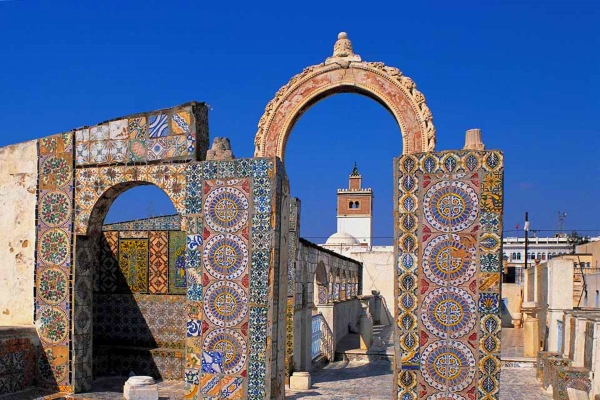
By: Ayed Nabaa
Source: Al Jazeera
Giving to charity is a central tenet of Islam. One form of giving is Waqf, a tradition of permanently endowing property dating back to the time of the Prophet Muhammad (pbuh).
In Tunisia, Waqf has had a long and, at times, controversial history.
“Waqf property can’t be sold, bought, donated or inherited. Its benefits, specified by the donor, go to particular individuals or a certain category of people,” explains Dr Noureddine el Khademi, the Tunisian religious affairs minister from 2011 to 2014.
Waqf beneficiaries can be private individuals – like the donors’ descendants – or the public.
Public Wafq endowments which supported schools, mosques, student lodgings and other benefits and services for Muslims, traditionally provided for people when the state could not, says Tunisian historian, Dr Chibani Ben Belghit.
The system, however, was open to abuse and mismanagement.
In 1957, Tunisia’s first president, Habib Bourguiba, planned to pursued a secular, Western system of government and so he abolished Waqf, a year after the country became independent.
The country had just come out of nearly 80 years of French colonial rule which had seen the appropriation of Waqf property. The abolition of Waqf threw the ancient system of permanent endowment into disarray.
Commissions were established to sort out the ownership of the former Waqf property. Critics and some families say people took property that didn’t belong to them because this settlement process was riddled with fraud, hurried and mismanaged. Cases are still pending today.
Giving for Eternity is a visually-rich exploration of the history of the Waqf tradition seen through the eyes of Tunisian historians, imams, legal academics – and the descendants of philanthropic donors who’ve struggled to repossess their property.
We visit iconic Waqf spaces like the Saheb Ettabaa Mosque with schools, dormitories and a hammam – and the hospital bequeathed by Aziza Othmana, a princess of Turkish origin. She set up special funds for maternal, psychiatric and other specialised healthcare.
Now, in post-revolutionary Tunisia, some members of the majority Ennahda party would like to see this long-standing Islamic tradition restored.



